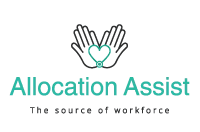In this interview with Dr. Mahesh Katre, a consultant pediatric allergist, we learn about his background and expertise. Dr. Mahesh is a highly experienced British consultant pediatrician with his UK CCT and additional specialist training in pediatric allergy. Prior to relocating to work in the United Arab Emirates in September 2023, Dr. Mahesh was a consultant at Royal Cornwall Hospital NHS Trust. Dr. Mahesh is dedicated to providing the highest quality evidence-based care, tailored to the specific needs of each child and aligned with international standards. Dr. Mahesh is particularly passionate about raising awareness about pediatric allergies, delabeling false allergies through appropriate challenge testing, and immunotherapy for children suffering from common allergies.
It was great to speak to Dr. Mahesh and hear about his relocation experience, as well as the new services he is providing at NMC Hospital here in Dubai.
So great to see you again, Dr. Mahesh. Thank you so much for making time to share your experiences with us. Would you start by talking about background, training, and subspecialty?
Sure, thank you for having me. I’m a pediatric consultant and also a pediatric allergist. Following my specialist registrar training in pediatrics, I did extra special interest – or SPIN – training in pediatric allergy at Leicester Royal Infirmary, one of the leading tertiary care hospitals in the UK. I was interested in allergy as it was an emerging subspecialty in pediatrics. It is a rapidly evolving field in terms of research and new testing and management protocols. I am happy to have the opportunity to use my training and experience from the UK here in the UAE.
So, have you found a big demand for pediatric allergy services in Dubai?
That’s a very good question. When I first started in Dubai, I found that there was a need for more awareness about childhood allergies, especially about testing. such as skin prick testing and blood tests. However, parents are becoming more informed, as we have been working on education and raising awareness for both the general public and other healthcare professionals. So, the demand for services seems to be increasing, and it’s good for the patients as well.
What is your opinion of the quality of the healthcare system in Dubai?
Healthcare in Dubai has been evolving very fast. It seems like every day I see new hospitals or services coming up. The UAE has a vision and strategy to bring the best from all over the world. Dubai is not just for citizens and residents but for medical tourism. People are coming here to Dubai to get the best possible treatment. So I think it’s a great time to be here. I’m really happy to be a part of this rapidly evolving healthcare system.
How have you settled into your consultant post at NMC so far?
The team I work with and the hospital management have been brilliant. They are supporting me in developing the Pediatric Allergy Services NMC. We have started some services that have not been done in the hospital before, so there have been some adjustments and a learning curve as we were starting from the beginning. It can take some time to build up a new patient base, but things are definitely going well.
To give an example, Augmentin or amoxicillin are commonly prescribed antibiotics. We do see lots of patients coming in where the parent says their child has an amoxicillin or Augmentin allergy due to some kind of reaction like a mild rash after taking antibiotics in the past. There has been research showing that around 95% of these reported allergies are not true allergies. If a child is labeled as allergic at an early age without adequate investigation, then it becomes difficult as they grow up and continue into adulthood. It results in limited options for antibiotic therapy whenever they go to the hospital for an emergency or more routine treatment.
Dr. Mahesh, could you tell us a bit more about the new pediatric allergy services you are providing at NMC?
So what I’m trying to do is I’m trying to de-label those who do not have true allergies. I first take a detailed history to assess if the patient is likely to have a true allergy. If it’s unlikely, I conduct a ‘challenge test.’ The patient comes into the hospital or clinic when they’re completely well. I give them a small amount of the antibiotic or medicine. Then, I monitor them for 3 to 4 hours to see if they develop any reaction.
Since the patient is in a clinical environment, I can treat any reaction that may occur. However, as I mentioned, 95% of the time, they do not have true allergies and don’t experience any reactions. This process is interesting and very helpful for patients because it frees them and their parents from worrying about a non-existent allergy.
The same goes for food allergies as well. I see some 3- or 4-year-old children, and they’re not eating a particular food because it is thought that they are allergic, but it might not be a true allergy. For example, reported peanut allergy is very common in European countries and all over the world. So, I do the same thing with the food by giving a small amount in the hospital in a controlled environment, and that’s the best way of testing where we suspect it is not a true allergy.
Why are many children labeled as allergic to something when they are not?
For example, when a child has a bad cough or cold or any infection, then they are prescribed antibiotics, and maybe after 2 or 3 days, they develop a bit of a rash. Now, that rash might not be related to the antibiotic; it might just be part of the infection, which is quite common. Then, to be extra cautious, they get labeled as being allergic to the antibiotic without it being tested for, and they stop that antibiotic and are given a different antibiotic. Then, that label sticks, and they continue to avoid that particular antibiotic. So, we really have to assess what kind of reaction they had—was it an immediate or a late reaction?—and depending upon that, then we decide if it is appropriate to do the challenge test.
In the majority of cases, the reaction is usually a rash, diarrhea, or something unrelated to the antibiotic. This can make it difficult to treat these children, even into adulthood, if they go to an emergency department very sick and their medical record shows that they have an allergy. In an acute situation, doctors will not challenge this and will obviously be cautious and give a different antibiotic. This can lead to antibiotic resistance over time, as they have limited options. So, this is something I’m really passionate about.
That’s really interesting and something that many people are not aware of. What other new services are you offering?
Another condition that is quite common is allergic rhinitis, which means that children get nose congestion all the time, and sometimes itchy eyes as well. This is often due to house dust mite allergy. Most commonly, when this is diagnosed, we’ll give symptomatic treatment like nose
sprays and antihistamines. But the thing I like to focus on is immunotherapy. However, this takes some time – you can compare it to training for a marathon. Say, if you want to run a half marathon, you would need to practice every day for at least 3 or 4 months before you could manage it. In a similar way, with immunotherapy it’s not an instant cure. For example, if you have a pollen allergy or cat allergy, we need to give a small amount of protein according to the type of allergy every day for at least 2 to 3 years. It takes a long time for the body to build up immunity to fight the allergen, so that’s the one area that I’m focusing on as well.
What was the main reason you decided to relocate to Dubai?
One of the main reasons was that I was looking for a new challenge. I was working in the public national health system and wanted to see how things work in other parts of the world. I had heard lots of things about Dubai, about the lifestyle here and how the healthcare sector is expanding, including from colleagues within my specialty, and I thought that there was scope to expand services here. So that’s from a professional point of view. From a family and personal perspective, it’s easier to visit my parents, who live in India, as it’s only around a 3-hour flight. So, if I get 3 or 4 days off, I can just go and come back, which was not feasible from the UK. Another thing is the weather in the UAE, which is great.
How is your family enjoying Dubai?
They also like it here. We have two fairly young children; my daughter is eight, and my son will be turning four soon. There was a period of adjustment for my daughter after moving to a new school, but she soon made new friends. They are enjoying school now, and it’s very similar, as their school teaches according to the British curriculum. I would say that the schools here tend to be more innovative in keeping up to date and trying to develop kids for challenges they will face in the future.
How was your experience working with Allocation Assist?
I really want to say thank you to you and your team. When you are outside Dubai, you don’t know what is happening here, and you need someone to guide you who you can rely on. Allocation Assist made my whole relocation experience go very smoothly. I didn’t know which hospital to go to because there are lots of hospitals and clinics in Dubai. Allocation Assist guided me with the right advice and information. This helped me to find the right job quickly, and the team also helped with the licensing process, which can be difficult to do alone, as I think it differs depending upon the specialty. I’m now enjoying life and work in Dubai, so thank you once again for everything.
How would you say your quality of life is here in Dubai?
It can take a few months to settle in when you first move to Dubai. However, once you pass that period, you can enjoy a good work-life balance with time for leisure and exercise. There is a lot to see and do in Dubai, especially on the weekends. There are also so many things and activities for kids. They go swimming, and my daughter enjoys gymnastics a lot. Safety-wise, I would say Dubai is one of the safest cities in the world. You can travel at any time, even in the middle of the night. It’s a lively city 24/7, and there are always some activities going on. So every time we are enjoying living here a lot.



